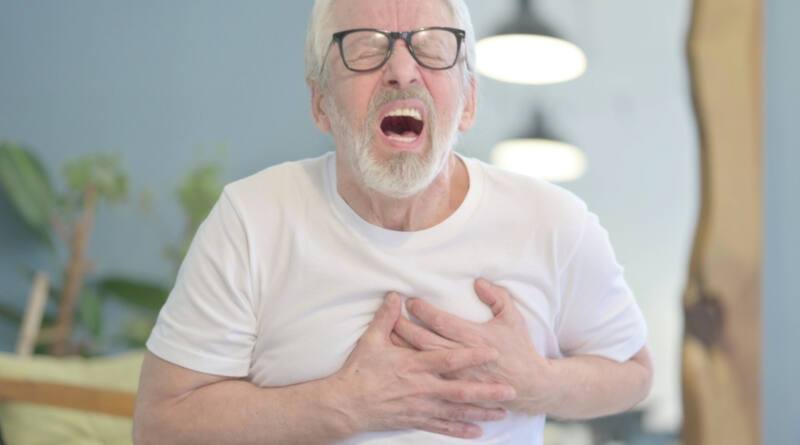Recognise And Respond: Know It All About Cardiac Arrest Now
Cardiac arrest will be a major health concern in 2024, affecting millions of people globally each year. This medical emergency happens when the heart abruptly stops beating, preventing blood flow and oxygen supply to essential organs. Without timely attention, cardiac arrest can quickly lead to severe brain damage or even death.
In this post, we will look at the most important parts of cardiac arrest, such as how to recognise the symptoms, what to do in an emergency, and what to do if you are alone during a heart attack. Furthermore, we will provide patients with an outline of what to expect before heart surgery, ensuring that they are prepared for this life-changing event.
Recognising Signs of Cardiac Arrest
The ability to recognise the signs of a cardiac arrest is critical, as early intervention considerably increases the odds of survival. Sudden collapse, lack of pulse and respiration, and loss of consciousness are all immediate indicators of cardiac arrest. However, there are warning symptoms that can precede cardiac arrest, particularly in people with certain risk factors. These warning indications include chest pain, shortness of breath, weakness, and an irregular heartbeat.
Individuals should pay attention to these warning symptoms, especially if they have a history of heart disease, high blood pressure, high cholesterol, smoking, obesity, or sedentary behaviour. If these warning signs or symptoms appear, obtaining quick medical assistance may avert a cardiac arrest.
What To Do During a Cardiac Arrest
If you notice someone having a cardiac arrest, take immediate action. Time is of importance, and your involvement could save lives.
Take these steps:
- Contact emergency services immediately, notifying them of the incident and providing their specific location.
- Provide CPR (Cardiopulmonary Resuscitation). Begin chest compressions to keep the blood flowing. Push forcefully and fast in the centre of the chest, completing 100–120 compressions per minute.
- If an automatic external defibrillator (AED) is available, follow the voice instructions to apply the pads to the person’s bare chest. If suggested, administer a shock while ensuring that no one is in contact with the victim.
- Perform CPR until expert help arrives or the subject shows symptoms of recovery.
Additional Tips for Handling a Cardiac Arrest Emergency
Aside from the immediate response, the following extra suggestions can substantially assist in coping with a cardiac arrest emergency:
- Encourage individuals to learn CPR and basic life support procedures, as bystander CPR plays a crucial role in survival.
- Be confident in your ability and act promptly. Early intervention offers the best likelihood of a successful outcome.
- Maintain calm: Panic might impede decision-making abilities. Remaining calm and focused allows you to better assess the issue and take appropriate action.
- Consider hands-only CPR: If you’re concerned about administering rescue breaths or worried about infections, chest compressions alone can be effective until expert aid arrives.
- Follow instructions carefully when using AEDs, notwithstanding their ease of use. Never use an AED on someone who has a pulse or is breathing.
- Educate your community: Host seminars, workshops, or awareness campaigns to educate people about heart health, risk factors, and the necessity of early intervention in cardiac arrest.
- Regular medical check-ups can detect heart abnormalities before they cause a cardiac arrest, especially for those with risk factors.
Checklist for Dealing with a Heart Emergency While Alone
Being alone during a heart attack can be terrifying, but having a plan in place can help you stay cool and take the required steps.
- Recognise warning indications of a cardiac emergency and monitor for any alarming symptoms.
- Seek emergency assistance: Call emergency services and present them with all essential information, including your location.
- Start CPR immediately. If you are trained in CPR, begin conducting chest compressions at the recommended rate of 100–120 compressions per minute.
- Use a speakerphone or hands-free device to communicate with emergency services while conducting CPR.
- Locate a nearby AED and use it promptly. Follow the instructions carefully, and provide suitable shocks as directed.
- Use the PulsePoint app: If accessible in your area, the app can inform nearby CPR-trained folks to assist you.
- Stay cool and focus on correct compressions until expert aid arrives.
- Don’t stop giving CPR until medical personnel arrive or the subject shows symptoms of recovery.
Understand What to Expect Before Heart Surgery
Things to Expect Before Heart Surgery:
- Pre-operative tests and evaluations.
- Detailed discussions with the surgical team about risks and benefits.
- Preparing mentally and emotionally for the procedure.
- Making necessary arrangements for post-operative care and recovery.
Conclusion
Cardiac arrest is a life-threatening disorder that requires prompt treatment. By recognising its symptoms and responding quickly, practicing CPR, and utilising accessible resources such as AEDs, bystanders can greatly enhance survival rates. Raising awareness and teaching people about cardiac health and early intervention is critical to creating a community that is prepared to face emergencies.
Furthermore, being prepared for a cardiac emergency when alone allows people to act confidently. Understanding what measures to take and keeping cool can make a huge difference until professional aid arrives.
Furthermore, knowing what to expect before heart surgery allows patients to approach the treatment with confidence, resulting in an easier trip to recovery. With advancements in medical technology and a better understanding of cardiac diseases, we can work to lessen the burden of cardiac arrest and improve outcomes for those at risk.
Sources
- [PenningtonsLaw.com: Heart Month 2024: Understanding Cardiac Arrests and Heart Attacks] (https://www.penningtonslaw.com/news-publications/latest-news/2024/heart-month-2024-understanding-cardiac-arrests-and-heart-attacks-and-what-to-do-when-they-occur )
- [NCBI—Cardiac Arrest – StatPearls](https://www.ncbi.nlm.nih.gov/books/NBK534866/ )
- [HeartandStroke.ca: Heart & Stroke 2024 Cardiac Arrest Report] (https://issuu.com/heartandstroke/docs/cardiac_arrest_report_feb_2024?fr=sYWQ2NjY0NDEzNjI )
- [AHA Journals: 2024 Heart Disease and Stroke Statistics] (https://www.ahajournals.org/doi/abs/10.1161/CIR.0000000000001209)
- [LinkedIn: Addressing Cardiac Arrest in 2024] (https://www.linkedin.com/pulse/addressing-cardiac-arrest-2024-highlights-from-csrc-ble4c?trk=organization_guest_main-feed-card_feed-article-content )
Disclaimer: The WFY website aims to share experiences, opinions, and information on various topics. However, it is important to note that the author of this blog does not possess any professional authority or expertise, especially in subjects related to health, medical advice, or legal matters. The information provided on this website is based on personal experiences, research, and general knowledge. While we strive to provide accurate and up-to-date information, we cannot guarantee the completeness, reliability, or accuracy of the content. Therefore, any action you take based on the information found on this blog is at your own risk. The contents of this blog should not be considered a substitute for professional advice or consultation from experts in the respective fields. If you require specific advice or assistance, we strongly recommend consulting with a qualified professional. The WFY (website) and its author will not be liable for any errors, omissions, or any losses, injuries, or damages arising from the use or reliance on the information presented on this blog. It is your responsibility to verify any information obtained from this blog and to use it at your own discretion. Please note that the opinions expressed in the articles and comments on this blog are those of the respective authors and do not necessarily reflect the views of the website owner or any associated individuals. By using this website, you acknowledge and agree to the above disclaimer. If you do not agree with this disclaimer, please refrain from using this website.





Very good post. I’m dealing with a few of these issues as well..